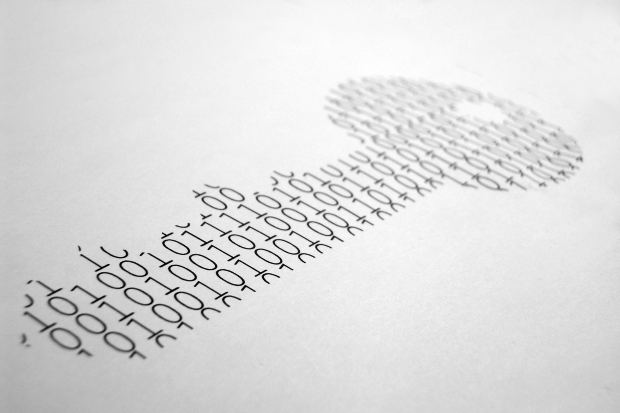This is a guest post by Christopher Wallace.
The recent proliferation of social media networks has increased awareness of online privacy issues. On the surface, some may feel that online privacy is only a concern for those attempting to hide their internet activities. This could not be further from the truth. Online privacy is an issue that impacts ALL of us.
Of course, it is safest to assume that all of your internet information and activities are in the public domain and that one must take steps to curtail those that you don’t want publicized. The reality is that this is not a practical or desirable solution for most users. Additional actions are required to make full use of the web AND to protect your privacy.
So where do you begin? Changing the software and configurations related to internet applications can be a daunting task. Below are some basic common sense ideas that can benefit most internet users.
Web Browsers
Almost everyone uses a web browser such as Mozilla Firefox, Google Chrome, Internet Explorer or Safari. These software providers are continually updating the security features of their browsers to protect users. To maximize your protection, be sure to update your browser to the latest version.
Windows Security
Microsoft Windows is the most widely used operating system and is therefore the biggest target for criminal activity. If you are using an older version of Windows, the first thing you can do is to upgrade to Windows 7. Microsoft claims that the computers with Windows XP are four times more likely to be infected with malware than computers with Windows 7. If your computer is old and in need of replacement, it may be more pragmatic to purchase a new computer already loaded with Windows 7.
Security Software
It is critical that you install software with anti-virus and anti-spyware capabilities. While paid versions of the popular programs may provide slightly more protection, the free versions should meet the needs of most users. These include Avast!, Avira, AVG and Microsoft Security Essentials.
Password Security
Password security obviously plays an important role in securing many internet applications. Be sure to assign unique passwords to important accounts. Choose security questions that only you can answer. “Just say no” to prompts that ask if you want to save your password. If possible, avoid entering critical passwords when using publicly accessible computers. Change your passwords periodically.
Editor’s Note: I strongly recommend LastPass for all your password needs.
Web Tracking
Many companies attempt to track your every move on the web. Much of this tracking is achieved by covertly downloading cookies onto your computer. In addition, some search engines retain a history of your web searches. Once they find out which sites you visit, these companies can target you with relevant advertising and spam.
Loading the most recent version of your web browser is your first line of defense. Adjusting the privacy settings on your browser can further reduce web tracking. It is a good idea to set up your browser to block third party cookies and to automatically clear your browsing data when you exit. Many browsers have additional security settings that provide even more protection. Be aware that some of these settings may cause inconvenience when using the web. You will need to determine the balance between convenience and security that is right for you.
Lastly, don’t conduct internet searches while logged into an account on the search engine. For example, don’t sign into your Google account and then proceed to conduct searches on Google. Your search activity will be linked to your account and your identity. A good tip is to use a different search engine to conduct searches than you use to access accounts.
WIFI Security
Many users have WIFI capability in their homes. This is great as long as you are the only one who can access it! Make sure that a password is required in order to access your WIFI connection. Your WIFI signal should be encrypted using WPA. You may also want to change the SSID name assigned to your WIFI connection.
For starters, it is a good idea to have a primary e-mail address and an alternate e-mail address. The primary address would be used for communication with friends and relatives, critical financial accounts, etc. The alternate address would be used for less secure activities such as some on-line purchases, contacts with strangers, etc. As a rule, don’t include account numbers, credit card numbers, social security numbers, passwords, etc. in your e-mails. If possible, use a webmail service that provides encryption.
Watch out for phishing activity. Don’t respond to e-mails asking for your account numbers, personal ID numbers or passwords. Warning…some of these e-mails may look like they are from a legitimate site. Be extremely careful when opening attachments from unknown parties. If you are unsure whether an attachment is from a legitimate source, don’t open it!
Social Networks
If you have accounts with Facebook, Twitter, LinkedIn, Google, Yahoo, or similar sites, it is advisable to tightly control how your personal information is disseminated to other individuals and organizations. Each site has a variety of privacy settings to help you with this. Review these settings carefully and adjust them to accommodate your personal situation.
Mobile Devices
Most of the ideas above apply to both computers and mobile devices. However, you may want to investigate additional privacy precautions related to your particular mobile devices. These may include Android security settings and location tracking. Be careful when downloading free mobile apps. Avoid posting or authorizing access to your International Mobile Equipment Identity number (IMEI).
Simple instructions for performing many of the recommendations above can be found at Priveasy.com
There are many more sophisticated tools available to further improve your internet privacy. However, the recommendations in this post represent the low hanging fruit that should be picked before moving on to the others.
It is important to keep in mind that there is no such thing as 100% online privacy. Even if you are diligent and faithfully practice all of the recommendations above, you could STILL be the victim of fraud, sabotage or identity theft. Always be on the lookout for potential intrusions. Review your credit card statements and notify the creditor immediately if you don’t recognize a charge. Obtain free copies of your credit reports every year and review the information carefully. Change accounts, e-mail addresses, passwords, etc. if you suspect any unlawful activity.
When it comes to online privacy, it truly is better to be safe than sorry!
Christopher Wallace is Vice President of Sales and Marketing for Amsterdam Printing, one of the nation’s largest providers of promotional products for businesses large and small. Amsterdam specializes in custom pens and other promotional items such as calendars, laptop bags and T-shirts. Christopher regularly contributes to Amsterdam Printing’s blog.






Allowing guest posters to use crap commercial anchor text like ‘promotional products’ is what’s killing guest posting. Did they pay for those links?
Hey Paul, they didn’t, and I’m perfectly happy giving him a link for spending the time and energy to write a blog post. If you have a problem with an unrelated bio having some links that you simply don’t like, you don’t have to read the post.
Another suggestion, try http://mypermissions.org
Thank you for the insight Tamar.
Any of us who spend any time at all on the web professionally I believe are even more so at risk. I’m a online marketer mostly working in SEO and Online Public Relations. Because of my work I often have to visit so many different areas on the web that I feel that I’m even more at risk. If you have any further suggestions I would be very interested in hearing about them.
Best regards,
Franklyn G.
The solutions offered in the article are underdeveloped and vague.. Let’s take Wifi security.. no mention of using a VPN to connect to public networks? That’s security 101 my friend. Then about tracking, there’s not even a mention of the popular browser add-ons Ghostery or DNT+. Also for Social Media MyPermissions is pretty good as mentioned by another reader but the advice you offer “Review these (privacy) settings carefully and adjust them to accommodate your personal situation” is totally uninformative.
Also bear in mind that the owner of this site (Tamar) loves ads and tracking, -http://www.makeuseof.com/tag/adblock-noscript-ghostery-trifecta-evil-opinion/ –
This is a clear conflict of interests and makes this article heavily biased.
Hey “Lx Stone,” I think it’s pretty clear that I didn’t write this article, and I also think it’s pretty clear that I accept guest posts that don’t necessarily reflect the opinions of the author. Further, I don’t care what people write as long as it gives my site new content and isn’t crappy quality (usually). I don’t edit except for grammar nor tell people what to say. I just give my guest writers a soundboard to provide content to my readers.
And I work in ad sales, so damn straight, I support ads to put food on my family’s table and on the table of those who are providing content for “free” for you to consume at your leisure. Hope that’s okay with you.
Love how you’re too timid to give a real name or email to your opinions though.
Password security is important yet a lot of Internet users aren’t as vigilant about it. Too many users have the same password for multiple online accounts. This puts all their accounts at risk when one of those gets hacked.
Editor’s note: Thanks for your comments. However, as stated in my blog policy, I have asked you to use your real name. I do not think your name is “MicroSourcing” and have edited your comment and URL as explained in the blog policy. Oh, and I stole your link.